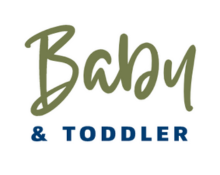
Staying well-hydrated is crucial for both breastfeeding mothers and their babies. Breast milk is made up of mostly water, so maintaining adequate hydration is essential for optimal milk production and flow. Here are some key points to consider regarding hydration while breastfeeding:
Drink to Thirst: Listen to your body’s signals and drink when you feel thirsty. Thirst is a natural mechanism that helps regulate your fluid intake. Pay attention to your body’s cues and respond by drinking fluids throughout the day.
Stay Hydrated: Aim to drink fluids consistently throughout the day rather than relying on consuming large amounts at once. Keep a bottle or a glass of water within reach during breastfeeding sessions to help stay hydrated.
Water is Best: Water is the best choice for hydration. It’s calorie-free and helps quench your thirst effectively. Aim to drink plain water whenever possible. If you prefer some flavor, you can infuse your water with slices of fruits like lemon, lime, or cucumber.
Limit Caffeine Intake: While moderate caffeine consumption is generally considered safe while breastfeeding, excessive intake can have diuretic effects and may affect your baby’s sleep patterns. It’s advisable to limit your caffeine intake and monitor how it may impact both you and your baby.
Watch for Signs of Dehydration: Monitor your body for signs of dehydration, such as dark-colored urine, infrequent urination, dry mouth, feeling fatigued, or lightheaded. If you experience any of these symptoms, increase your fluid intake.
Be Mindful of Excessive Fluid Intake: While staying hydrated is important, excessive fluid intake does not necessarily increase milk production. Drinking excessively large amounts of fluids can lead to frequent urination and may not provide additional benefits for milk supply. Focus on maintaining a balanced fluid intake based on your thirst and the recommended daily guidelines.
Seek Professional Advice: In certain situations, such as hot weather, intense physical activity, or if you’re experiencing illnesses like diarrhea or fever, you may need to increase your fluid intake to compensate for additional fluid loss. Consult with a healthcare professional or a lactation consultant for personalized advice in such situations.
Remember, breastfeeding is an individual experience, and hydration needs may vary from person to person. Trust your body’s signals, prioritize staying hydrated, and maintain a balanced approach to fluid intake. If you have any concerns or questions about your hydration levels while breastfeeding, it’s always best to consult with a healthcare professional for personalized guidance.
